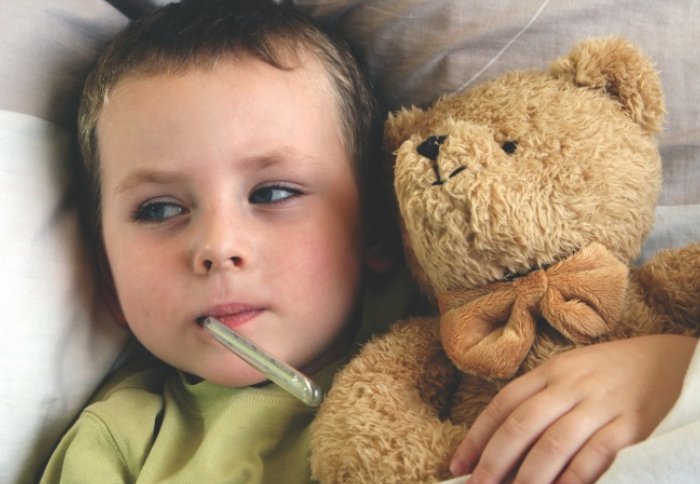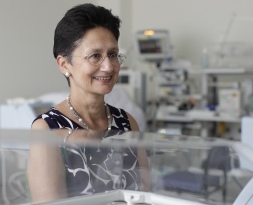Britain neglecting children's health research, says report
by Sam Wong

Barriers to effective child health research are contributing to a high childhood mortality rate in the UK, according to a report.
Based on a news release from the Royal College of Paediatrics and Child Health
Barriers to effective child health research, including misconceptions about clinical trials, too few doctors involved in research and a fragile funding base, are contributing to a high childhood mortality rate in the UK and too many premature deaths in adults, according to a new report launched today by the Royal College of Paediatrics and Child Health.
The report, "Turning the Tide: Harnessing the power of children’s research", states that despite commitments made by successive governments and progress in research, a historic society-wide reluctance to involve children in research has left the UK with a dearth of understanding around the major adult diseases, such as heart disease and diabetes, that have their origins in early life. The report argues that it will take collective action from medical royal colleges, the government, children’s charities and funding bodies, as well as a change in culture, if the UK is to improve its standing as one of the worst countries in Europe for child mortality. Currently the mortality rate for children under the age of five years in the UK is 30 per cent higher than the average for western Europe, with five excess deaths a day compared to the best performing countries.
Neena Modi, Professor of Neonatal Medicine at Imperial College London, Vice-President for Science and Research at the RCPCH, and lead author of the report, said:

Professor Neena Modi
“In some ways we’re in a fortunate position in the UK in that we’ve had strong recognition from successive governments of the importance of medical research. But we need to make the progress that has been made in certain areas the norm, not the exception. Children make up over 20 per cent of the population, but funding secured for child health research represents just 5 per cent of the annual UK public and charitable research expenditure, the equivalent of less than £10 per child each year compared to about £50 per adult. In the UK, children’s research as a proportion of all registered studies is about a third of the international figure. And fewer paediatricians than ever before have experience or involvement in research.
“It’s not just about funding; it’s also about a culture shift. Forty years ago, childhood leukaemia was a death sentence. Treatment has improved because of evidence gained through the participation of children in clinical trials as a matter of course, and now the majority of children with leukaemia are cured.
“We need to work together to effect a sea change in the recognition of the importance of child health research for the entire population.”
The report marks the start of a campaign, led by the RCPCH, which sets out to:
- Debunk the myths surrounding clinical trials – and push for the introduction of a system of ‘opting out’ of studies designed to reduce uncertainties in treatments, rather than ‘opting in’
- Bring organisations together in a UK “Children’s Research Collaboration” to optimise use of funding for research and raise awareness of the need to strengthen children’s involvement
- Improve education, research training, and guidance for paediatricians: with the RCPCH pledging to improve research training for all paediatricians and clear routes into research careers
- Strengthen the infrastructure for children’s biomedical research in the UK by supporting the establishment of a children’s trials network for non-medicines as well as medicines studies, and children’s health sciences networks to share resources, and promote cross-institutional collaboration between paediatricians, adult physicians, and non-clinical scientists researching the early life origins of adult diseases
"By taking part in research we feel less helpless and more hopeful."
– Nicole Lyster
Nicole Lyster has two children with cystic fibrosis, a life-shortening genetic condition. She said:
“We are a family that like solutions, but cystic fibrosis has no cure, so doing anything that can help with the treatment and give our children and others like them some hope for the future, is very important to us. We were very keen to take part in any clinical research that will further the understanding of CF, its effects and treatments. By taking part in research we feel less helpless and more hopeful, and it has given our children a sense of pride in their contribution to the future.”
Professor Modi continued:
“We have to get the message across to parents, doctors and nurses, and NHS managers, that clinical research is very carefully reviewed and regulated, and that it is important to provide opportunity for children to be involved. This is vital to ensure that national clinical guidelines, policies and treatments for children are informed by research evidence.”
“The UK population is ageing and we also have to get the message across to universities and funding bodies that a healthy childhood is the key to health in adult life, and the sciences that hold enormous promise for health in old age, such as tissue regeneration and stem cell biology, require research into normal development in infancy.”
Article text (excluding photos or graphics) © Imperial College London.
Photos and graphics subject to third party copyright used with permission or © Imperial College London.
Reporter
Sam Wong
School of Professional Development